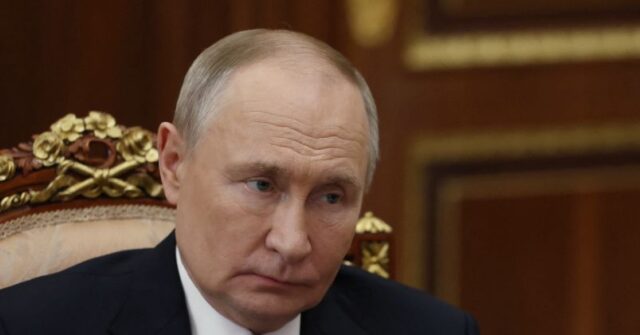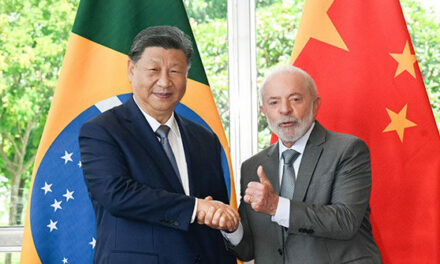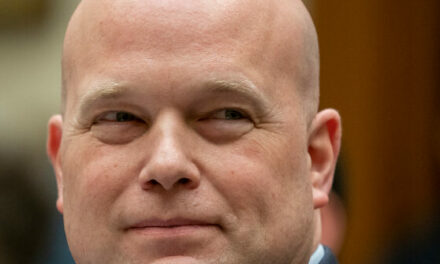We support our Publishers and Content Creators. You can view this story on their website by CLICKING HERE.

Russian President Vladimir Putin claims the ballistic missile strike on Ukraine on Thursday was the debut of a new ‘unstoppable’ weapon as he blamed the West for turning his invasion of Ukraine into a global war.
Ukraine reported what it claimed as an Intercontinental Ballistic Missile (ICBM) strike on the central city of Dnipro on Thursday morning, prompting a flurry of global concern at what could be the first use of a true ICBM in anger in history. Yet Western governments and intelligence agencies were apparently reluctant to openly acknowledge the claim, Russia itself refused comment, and eventually even Ukraine itself cast doubts on its own assertions.
Now Russia’s President Putin has given his own version of events, saying the strike was not by ICBM — weapons which travel into space before plunging back to earth, with ranges of thousands of miles — but rather by a never-before-seen nuclear-capable Intermediate Range Ballistic Missile (IRBM). Putin identified as the ‘Oreshnik’ (‘Hazel’) type which he claimed is totally impervious to Western countermeasures in a televised speech on Thursday night.
Separately, Putin ally and former Russian President Dmitry Medvedev, now a Kremlin attack dog frequently employed in making lurid nuclear threats, called the new missile “hypersonic” and published what purported to be footage of the strike.
Such claims are difficult to take at face value, given the importance of propaganda in wartime and the fact President Putin’s television conferences are as much for domestic consumption and Russian morale as they are to inform foreign observers. Russia has also made bold claims about its new missile systems in the past, not least about its “hypersonics”.
The Kinzhal missile was said to be so fast and maneuverable it was impossible to shoot down, however the makers of the United States Patriot missile shield system probably enjoyed a healthy bump in their order books from having shot down a number of them in the skies over Ukraine last year.
Nevertheless, Putin was so bullish about the invulnerability of Oreshnik missiles, he offered a somewhat cynical reassurance to civilians he said he would even give public advance warnings of future launches. The Russian President said in his televised address on Thursday night, per Kremlin media: “We will do it due to humanitarian concerns – openly, publicly, without any concerns about any countermeasures from the enemy, who will also receive this information… Why without any concerns? Because there are currently no countermeasures for this weapon at this moment.
Russia has no obligation to notify third parties about IRBM launches in advance, as it does with ICBMs, per a year 2000 memorandum signed with the United States to reduce the likelihood of tests and military exercises being misinterpreted as sneak attacks.
The very term hypersonic is also somewhat problematic. Very much the subject of the zeitgeist in military thought and technology, the theoretical concept of a hypersonic missile is one that can maneuver rapidly to avoid enemy fire at extremely high speeds, over five times the speed of sound. While many missiles achieve such speeds, it is the evasive action at speed factor which seems to be basically unproven. Nevertheless, Russia has made its claims, not least that Oreshnik flies at mach-10, or 7,600 miles per hour.
As well as discussing the alleged weapon itself, President Putin also spoke to what he claimed were his motives, blaming Western states backing Ukraine’s defence against his invasion. On this point he was quite explicit, stating the Dnipro attack was: “in response to the use of American and British long-range weapons”.
Testing the new Oreshnik missile against a live target — a Ukrainian city — was a “response to the aggressive actions of NATO regarding Russia”, he said.
By supplying Ukraine with long-range missiles — which have been used to strike inside Russia itself for the first time this week — President Putin said “the conflict in Ukraine, provoked by the West, has acquired elements of global nature”. While these remarks made no reflection on Russia’s culpability in the conflict, nevertheless it clearly underlined the Kremlin attitude that Western states were involving themselves in what they consider their own private war.
Ukraine’s President Volodymyr Zelensky, who had earlier in the day referred to Russia as his “insane neighbor” for firing ballistic missiles at his cities, was prompt in responding to President Putin’s speech. He said Russia had “escalated and expanded” the war again with the strike and compared it in magnitude to Russia deploying North Korean soldiers to fight against Ukraine.
Zelensky rejected Russia’s pleading over Ukrainian missile strikes into their territory, saying it was no more or less than Russia already inflictys on Ukraine daily. He said: “Putin lies when he claims that Ukraine’s use of long-range weapons is somehow a new step for us. This is not the first time we have used such weapons, and we have every right to do so under international law. Our right to self-defense is the same as that of any other nation.
“And when Russian missiles hit our cities, when Iranian “Shaheds” attack Ukraine every night, when a North Korean contingent is deployed on our borders, Putin is not only prolonging the war—he is spitting in the face of those in the world who genuinely want peace to be restored.”

 Conservative
Conservative  Search
Search Trending
Trending Current News
Current News 







